OKR Impact Report
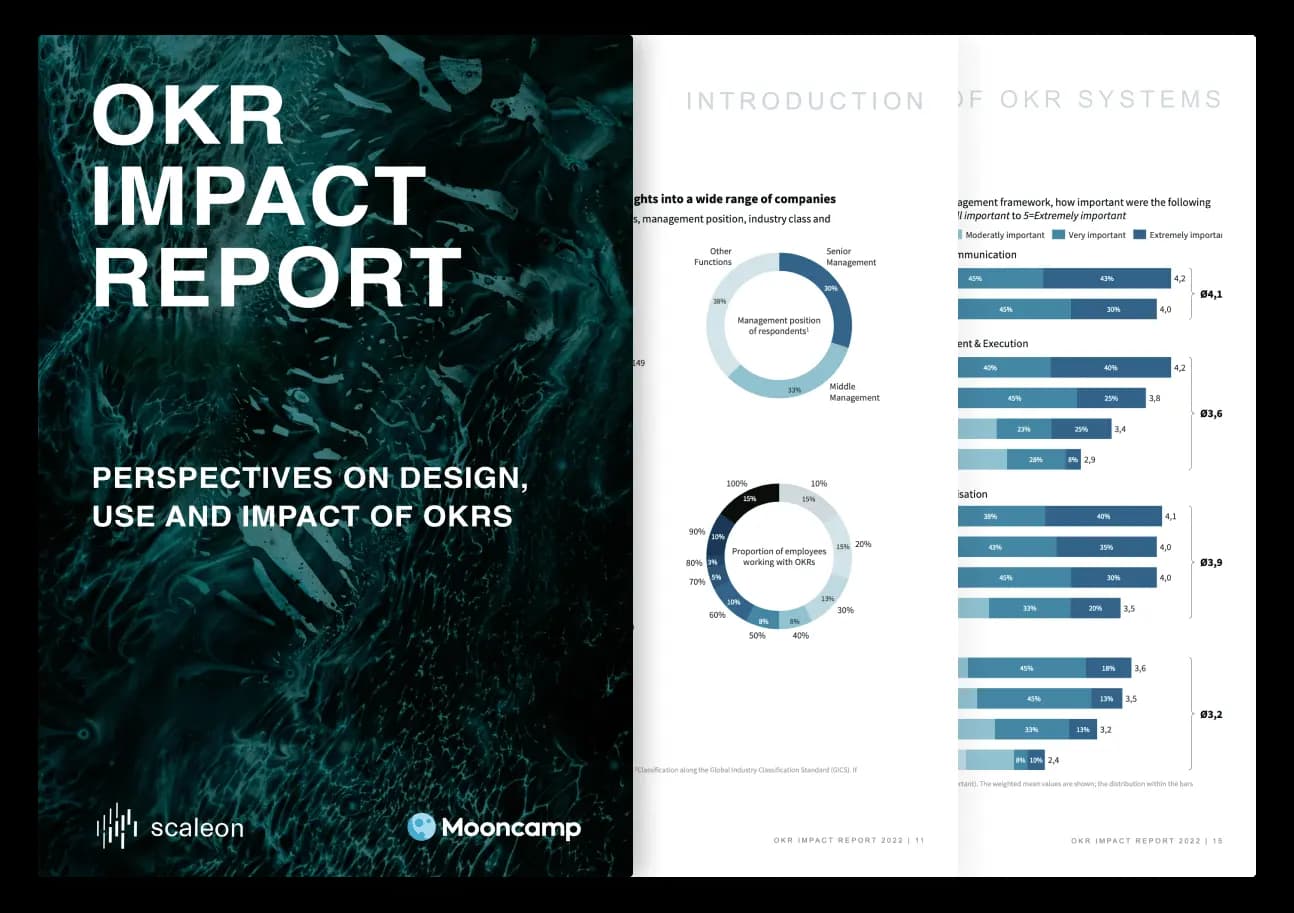
OKRs are a top management issue
OKRs are on the top management agenda. In nearly 90% of the companies surveyed, the executive management or the board of directors is responsible for the introduction of OKRs.
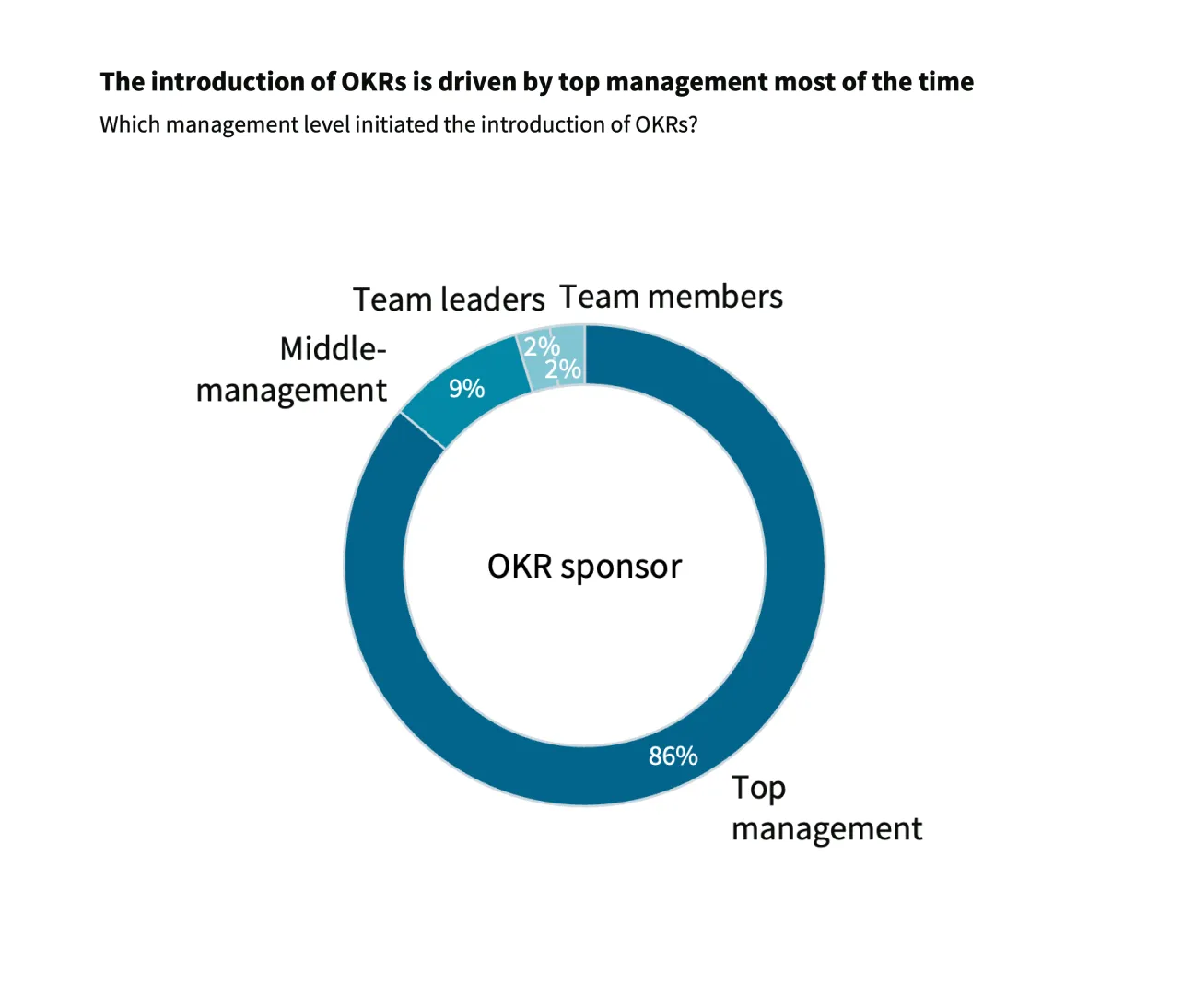
OKRs should improve transparency, prioritization and strategy execution
The main motivations behind the introduction of OKRs is to improve transparency, prioritization as well as strategy execution. Other key motivations include more effective internal communication and better alignment between teams.
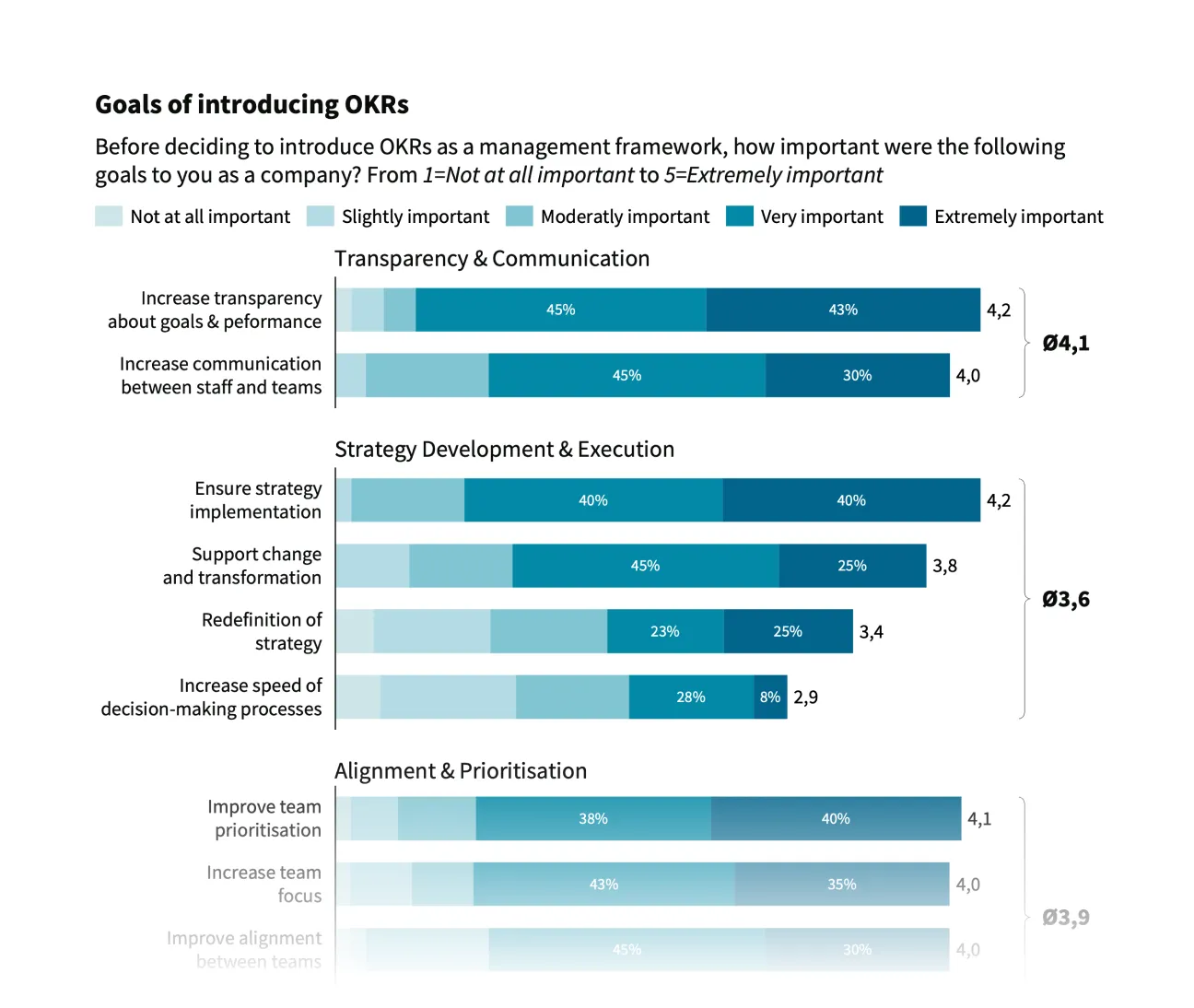
OKRs drive change
Nearly 60% of companies use OKRs as part of a change or transformation initiative. The key motivations for the initiatives here are to strengthen corporate culture and execute strategy more effectively.

Strategy is the key reference point for OKR implementation
OKRs can be implemented for a variety of purposes. Most of the companies surveyed are clearly using OKRs strategically to drive specific divisional strategies or even overall corporate strategy.
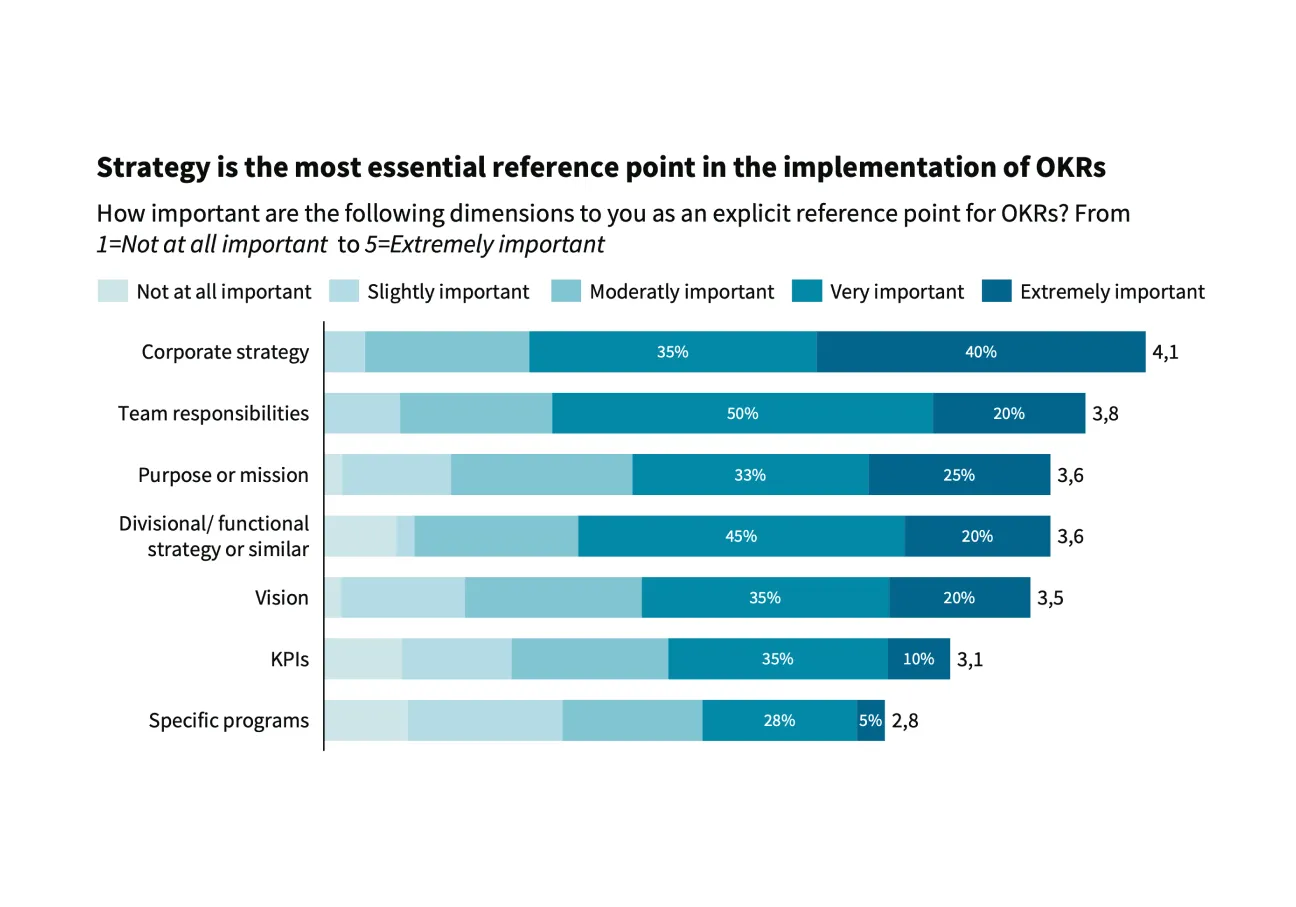
OKR Masters safeguard the process
Over 80% of companies have OKR Masters or a similar role to oversee and manage the OKR process.
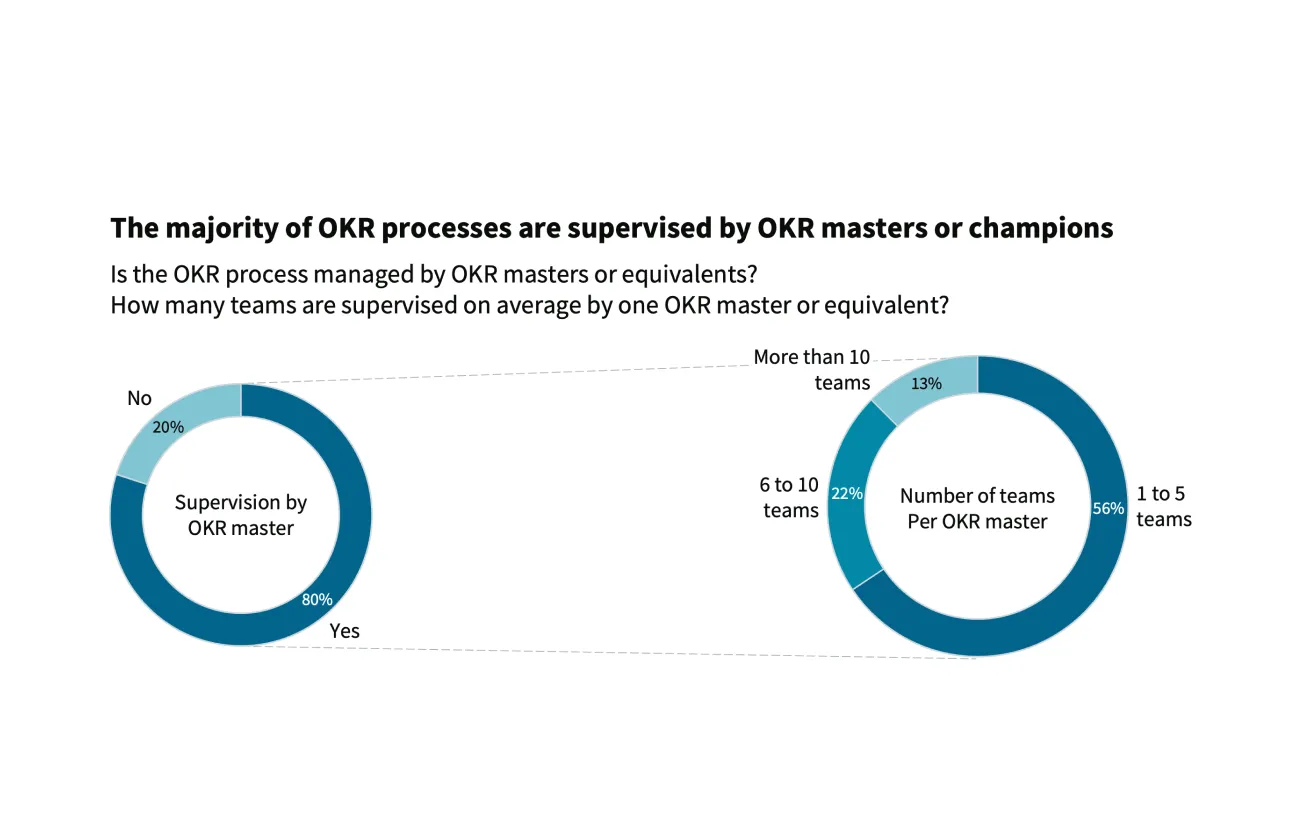
OKRs have impact
The surveyed decision makers strongly recommend OKRs with a rating of 8.5 on a 10-point scale. 83% agree and almost one third strongly agrees that OKRs have had and continue to have a positive impact on the organization.
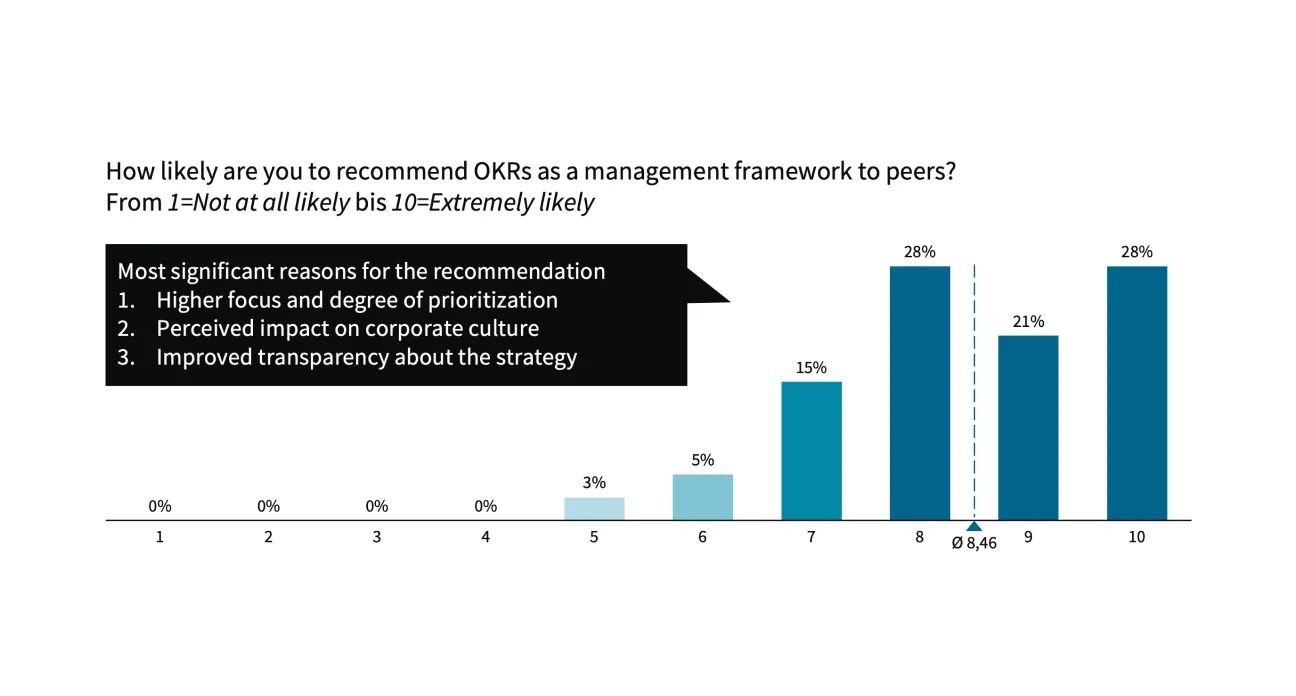
Transparency, communication and strategy implementation are improved
The categories where OKRs have the highest impact are transparency about goals and performance, followed by effective internal communication and strategy implementation.
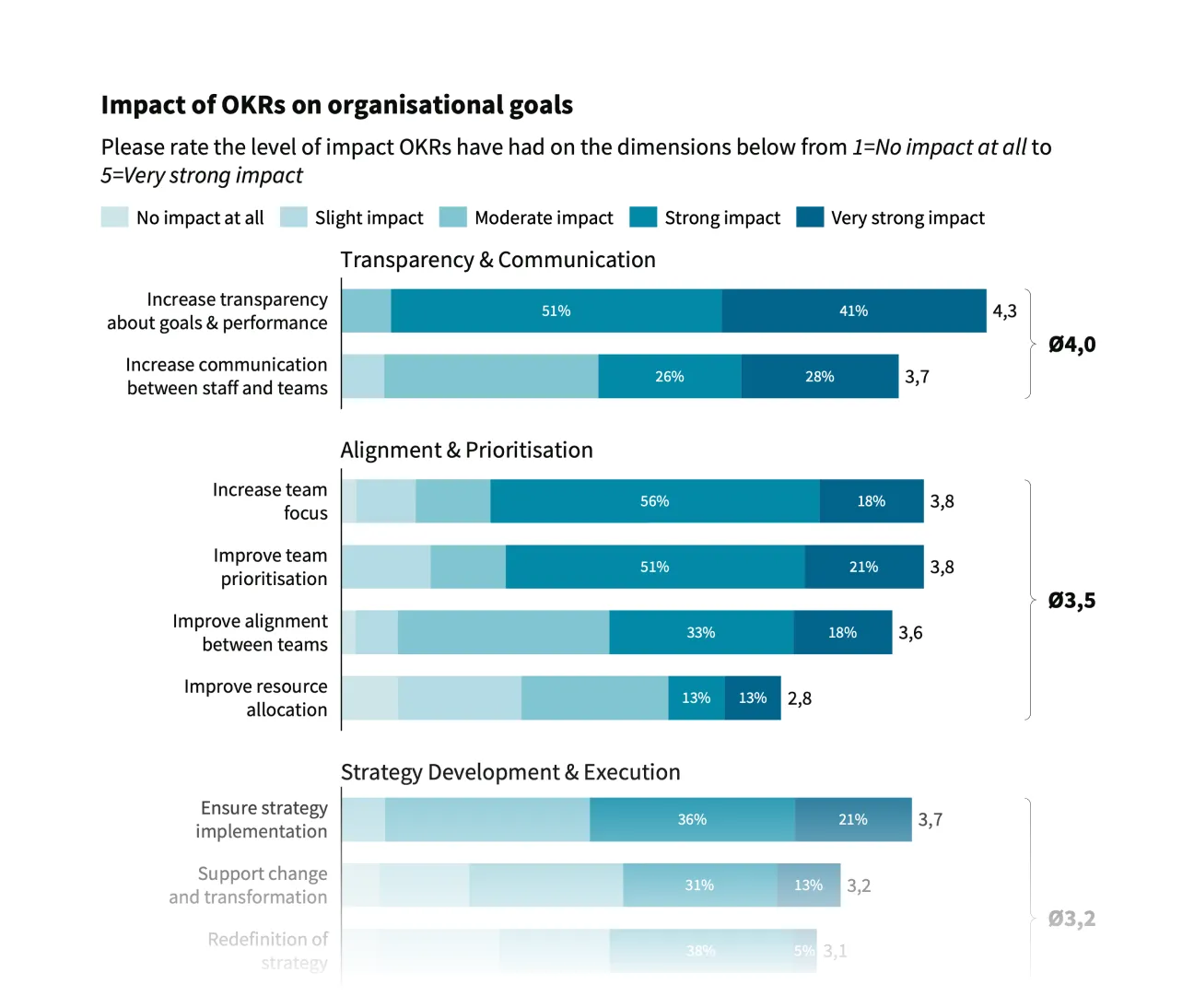
The most successful companies have a strong strategic focus
The top performers from the study with the highest OKR impact are primarily characterized by a clearly defined purpose. They use the OKR reference points corporate strategy, the vision as well as the purpose significantly more than the comparison group.
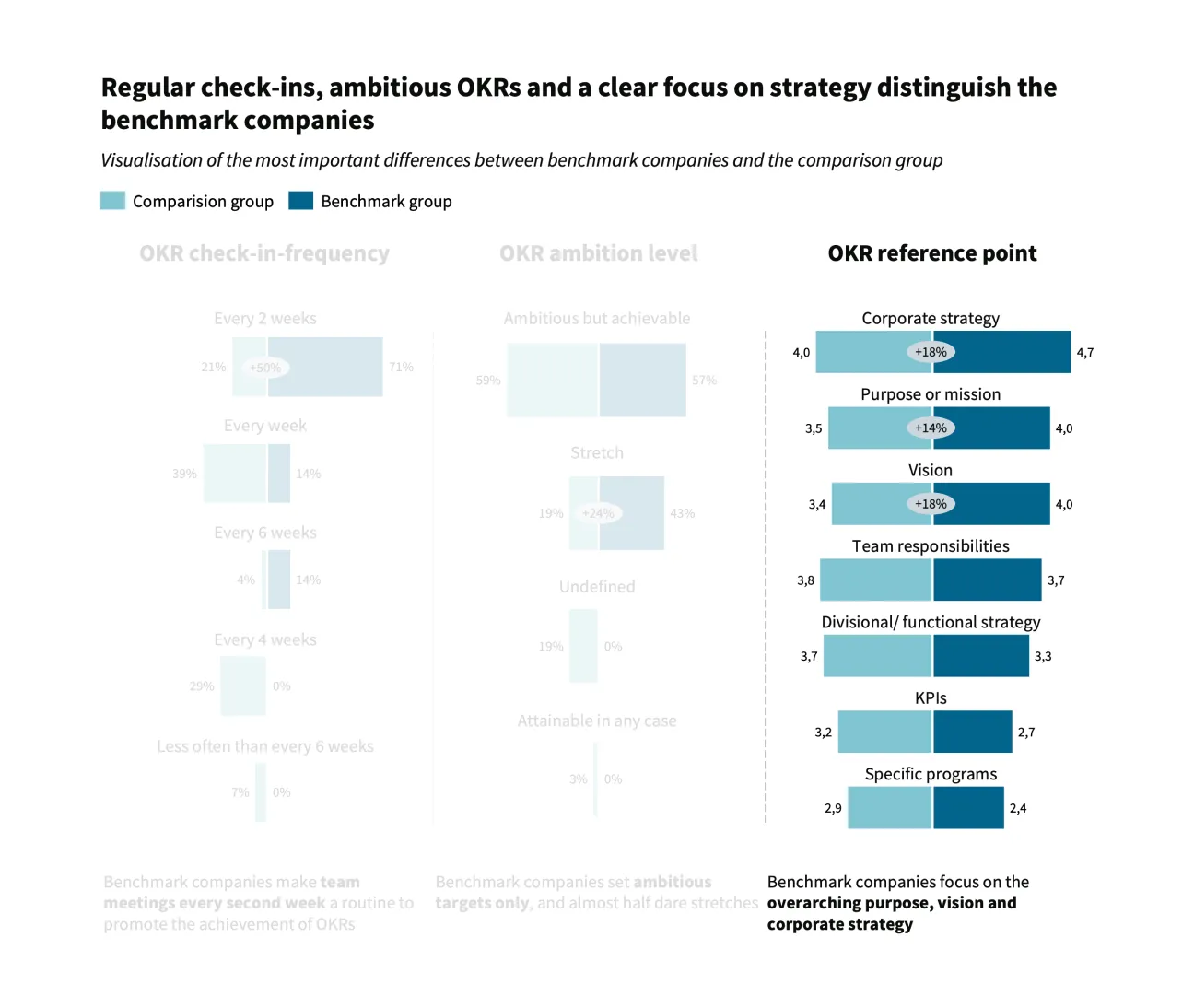
The most successful companies communicate more intensively
The companies with the highest impact show an overall 28% higher communication intensity, measured by the number of communication channels used. This pattern can be observed at any point within the OKR cycle. In addition, the more successful companies hold OKR check-ins significantly more frequently than the comparison group.
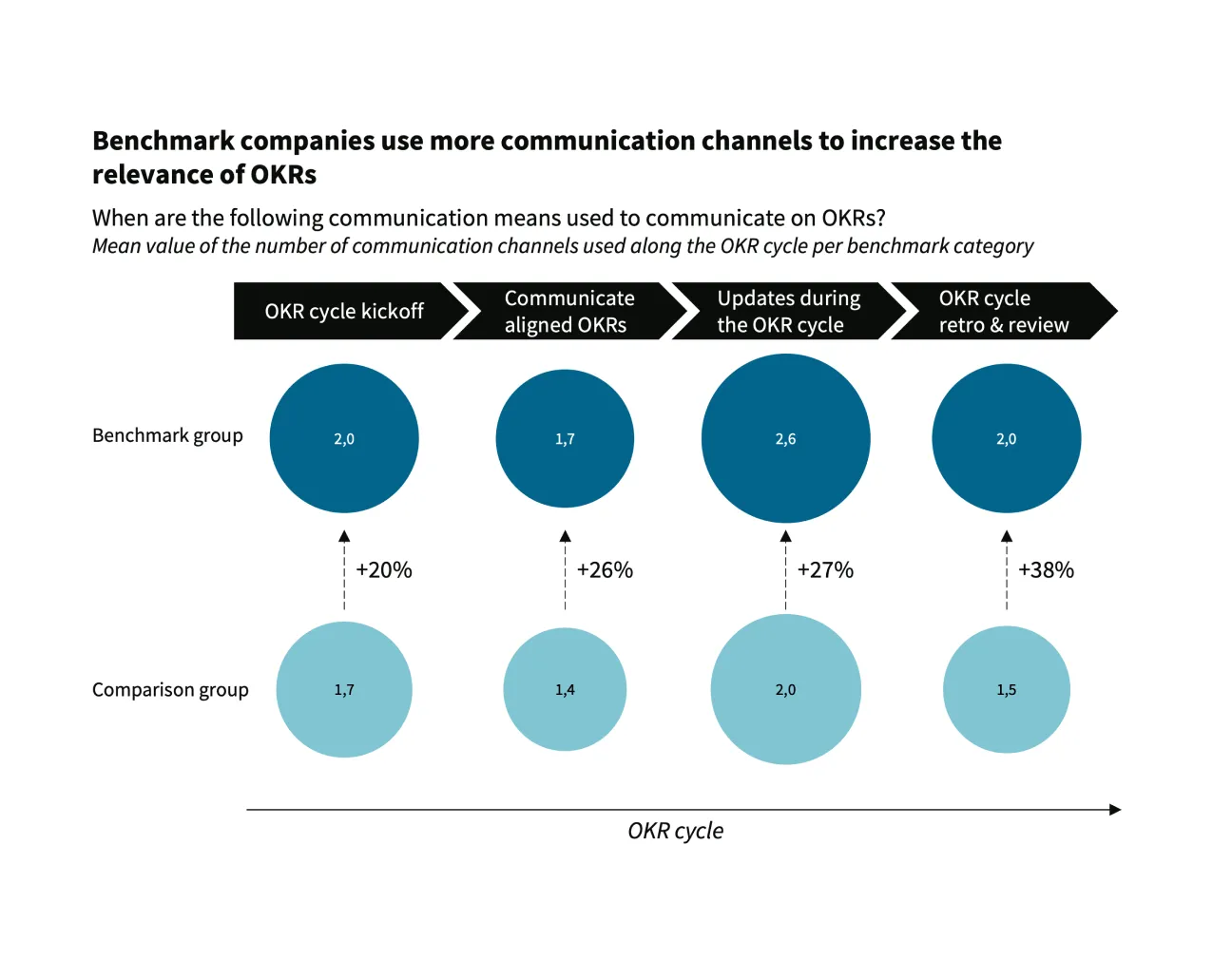
OKRs require discipline and commitment from management
The most important success factors in implementing OKRs are clear processes, disciplined pursuit of the methodology, support from management, and definition and communication of the strategy as a guiding framework.
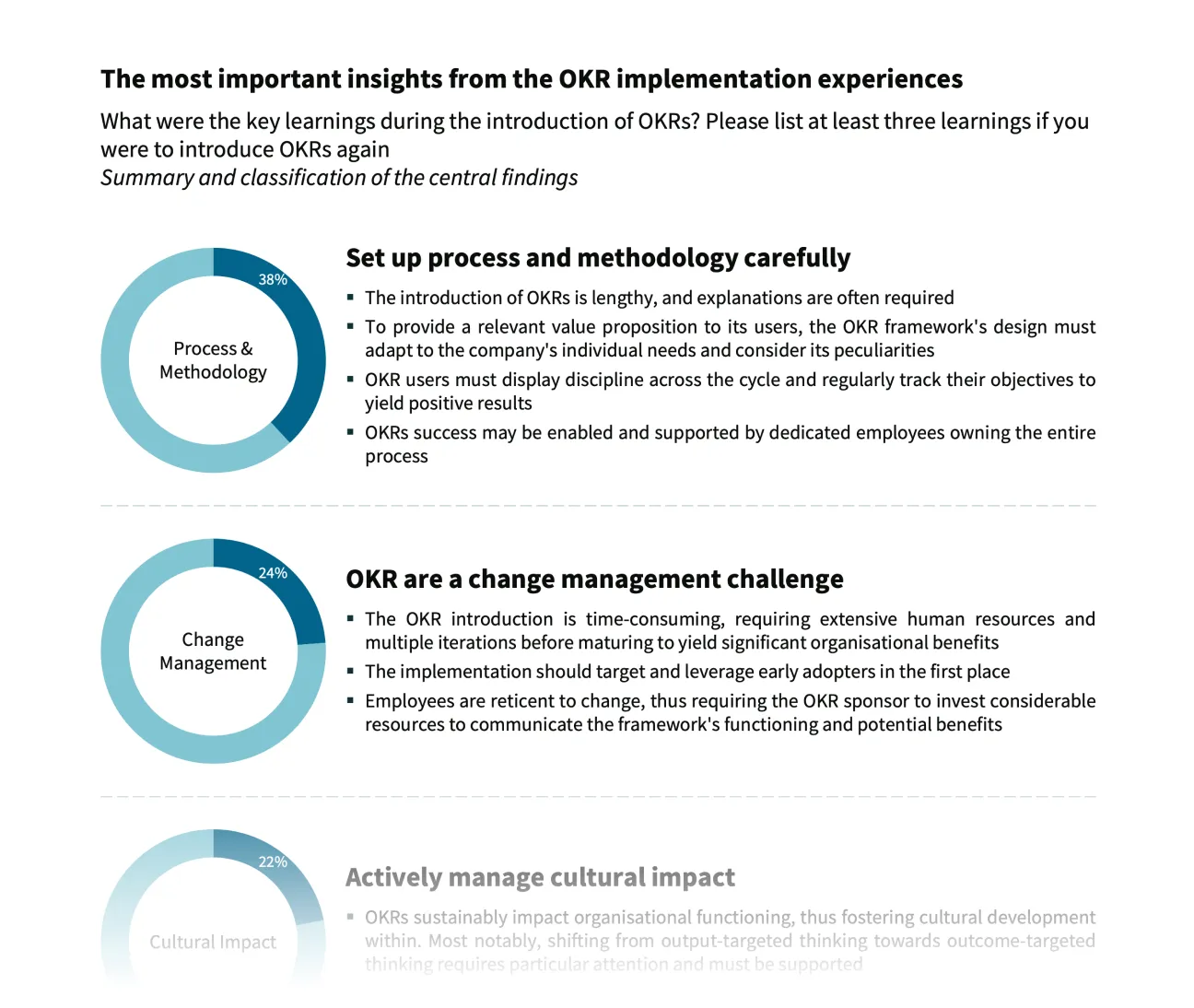
Companies see OKRs as a transformative journey, not a one-off project
OKRs are not a project that can be completed. OKR requires continuous development and increased relevance at all levels in the organization. Processes and methodology continue to be honed and adjusted as needed from cycle to cycle.
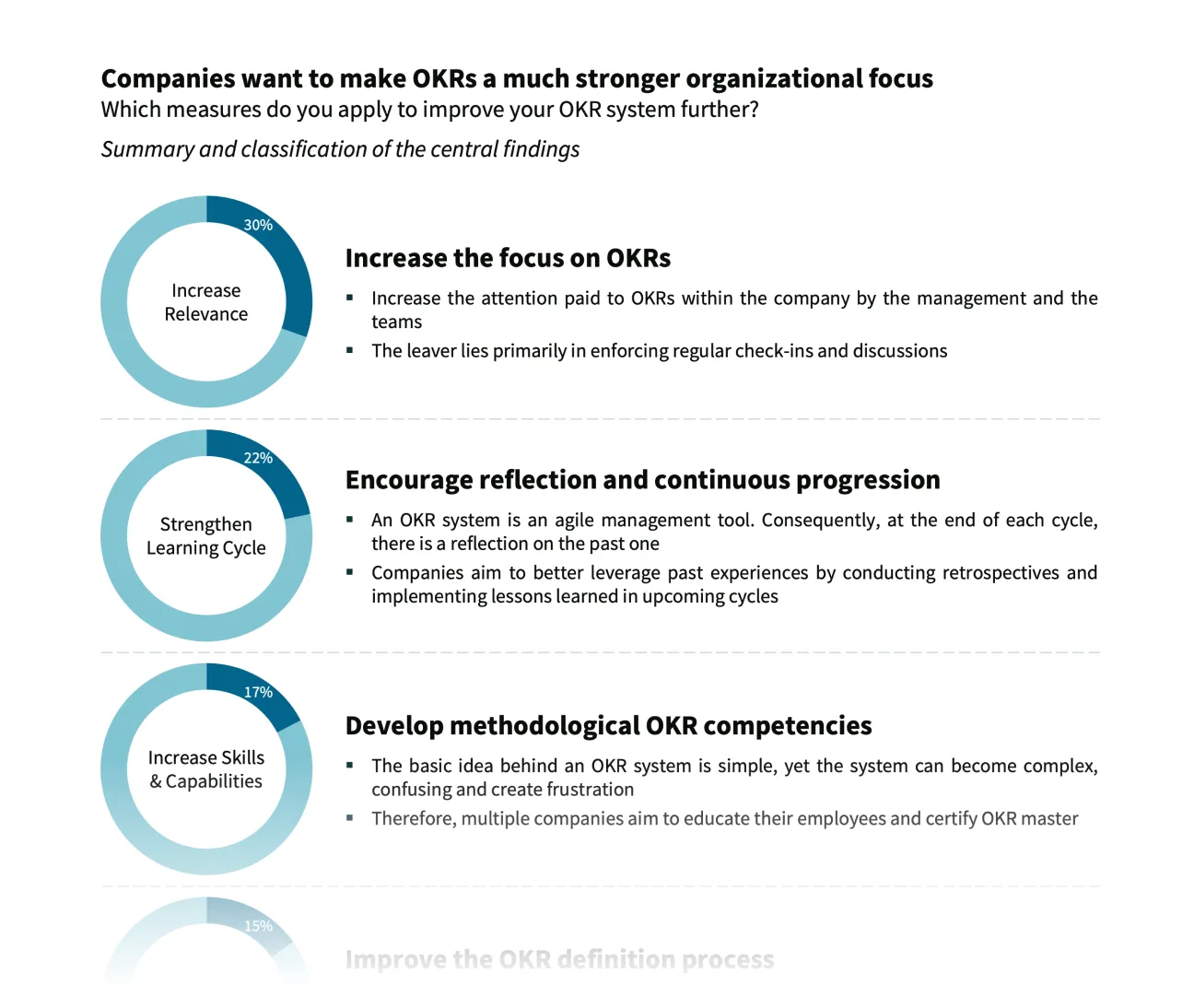
Download the OKR Impact Report
Download the full report as a PDF to get all study findings.